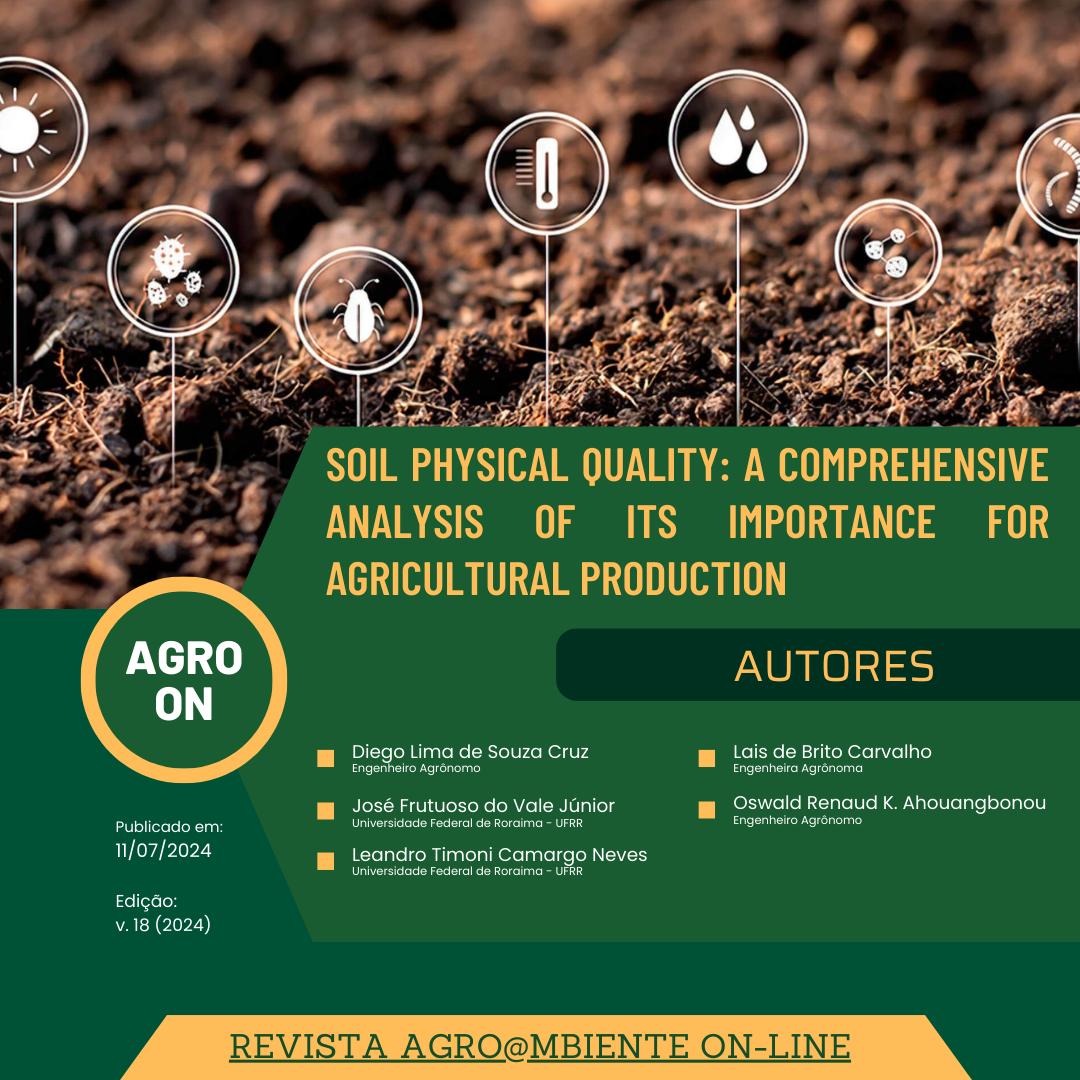Soil physical quality: a comprehensive analysis of its importance for agricultural production
DOI:
https://doi.org/10.18227/1982-8470ragro.v18i00.8060Palabras clave:
Compaction. Management and conservation. Sustainability.Resumen
In Brazil, soil physics has acquired great notoriety in recent decades due to losses in agricultural production resulting from soil degradation. Degraded areas are commonly abandoned and generate greenhouse gas emissions, which is why the conservationist soil management have been a priority in government programs. The application of this type of management requires indepth knowledge about the physical properties of the soil and how each of them interacts with other components of the environment. In this context, the objective of this review article was to bring scientific work that correlated the physical quality of the soil with agricultural productivity. Articles indexed in the Web bases of Science, Scopus, Scielo and Redalyc were used. This methodology provided 129 articles, 4 books, 1 book chapter and a doctoral thesis. It can be established that the physical quality of the soil is dynamic and influenced by a set of properties simultaneously, also responding to soil management and climatic conditions. Compaction is the most studied property and has direct effects on the loss of agricultural production, leading many areas to erosion and compromising the soil’s environmental functions. It is considered that maintaining the physical quality of the soil is an essential component within the planning of agricultural activities and can prevent the degradation of areas. Understanding the dynamics of these properties can also help in reversing advanced cases of loss of soil physical quality.

Descargas
Publicado
Número
Sección
Licencia
Derechos de autor 2024 REVISTA AGRO@MBIENTE ON-LINE

Esta obra está bajo una licencia internacional Creative Commons Atribución-NoComercial-SinDerivadas 4.0.
Declaro por mi nombre y en nombre de los otros autores que represento el acto de presentación de este artículo, la Revista Agro@mbiente On-line que: • 1. El contenido del artículo es el resultado de los datos originales y no publicados o presentados a otras revistas. • 2. Además del autor principal, todos los co-autores participaron en el trabajo lo suficiente como para hacer pública su responsabilidad por el contenido. • 3. En caso de aceptación del artículo, los autores coinciden en que los derechos de autor relativos a ellos pasará a ser propiedad exclusiva de la Revista Agro@mbiente On-line, prohibida cualquier reproducción, total o parcial en cualquier forma o medio de difusión, impresa o electrónica, sin la autorización previa y necesaria solicitada y, si obtenida, debe aparecer gracias a Lo periodico Agro@mbiente On-line.

